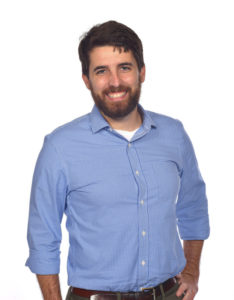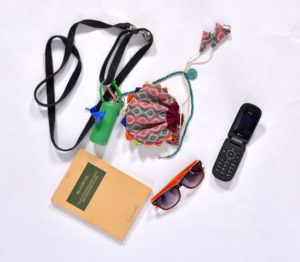William Mason
 Assistant professor of music
Assistant professor of music
· Bachelor’s degree in politics, Oberlin College and a bachelor’s degree in music performance from Oberlin Conservatory; doctorate in music theory, Columbia University
· Former visiting instructor of music theory, Oberlin Conservatory
Why I became an educator: “I went to a music conservatory as an undergraduate with the expectation that I would pursue a career as a performer and composer. I had some really amazing teachers in both my applied and academic classes who exposed me to new music and to new ways of thinking about music. They demonstrated that it makes no sense whatsoever to separate work as an artist and work as an academic, that the two are simply different modes of discourse, different forms of thought. The discussions we had inspired my work as a composer and performer, and I found that analyzing musical works, technique and social contexts led me to make better music and to experience music more deeply. The opportunity to continue to deepen my own experiences with music, and to teach others to do the same, made teaching not only a desirable career but an inevitable one.”
My current research focus: “I’m interested in the intersection of music analysis, media theory and music cognition. How do the tools we use to make music shape our perception of music? How does our perception shape our tools? How can thinking about music’s technologies—from instruments to notation to recording to search engine algorithms—inform our analysis and interpretation of musical works and practices within their specific historical contexts? In my creative work, I’m finishing up a composition about an iceberg for Nouveau Classical Project, and beginning work on music for a follow-up album with my noise rock band, Happy Place.”
Why I chose Wheaton: “Playing the clarinet the fastest and the cleanest makes you an alright clarinetist but it doesn’t necessarily make you an interesting musician. Interesting music is made by interesting people. I wanted to come to Wheaton so that I could help guide and focus the creative work of students who already have wide-ranging interests in many facets of their world. I know that Wheaton students can imagine and implement amazing projects, and I can’t wait to see what they come up with. (Plus, two of my aunts attended Wheaton.)”
Most important lesson I learned in college: “Talk to people. When I was 18 I was very shy and worried about people thinking I wasn’t bright, so I avoided talking in class, reaching out to my professors or going up to say hello to visiting artists who came to my college. I missed out on a lot of important learning opportunities as a result.”
What I want every student to learn: “A liberal arts education is about learning how to think. Because music often lacks obviously representational or semantic content, I believe it’s an especially useful set of texts/practices for thinking critically about core questions in the humanities. These include how expression and aesthetic value are socially and culturally constructed; how that constructedness allows music to shine new light on specific historical epochs; how perception is plastic and adapts to new technologies; how all art is political even if it’s not ‘political art;’ and how seemingly polar dyads like mind and body, individual and community, culture and nature are all remarkably porous. Learning how to formulate these kinds of questions is a critical component of a Wheaton education.”
What few people know about me: “I spent four summers driving a ferry in Maine, and in high school I briefly looked into joining the Coast Guard instead of pursuing music. I still love the outdoors and it inspires much of my creative work.”
My photo shoot object: “I brought a pocket score for ‘Béla Bartók’s Music for Strings, Percussion and Celesta.’ In high school, my dad’s recording of this piece (performed by the Chicago Symphony Orchestra and conducted by Pierre Boulez) was on heavy rotation in my car and I loved listening to it on snowy Maine nights. It was my gateway into much of the music that I love today.”
Return to main story and read about other new tenure-track faculty.

